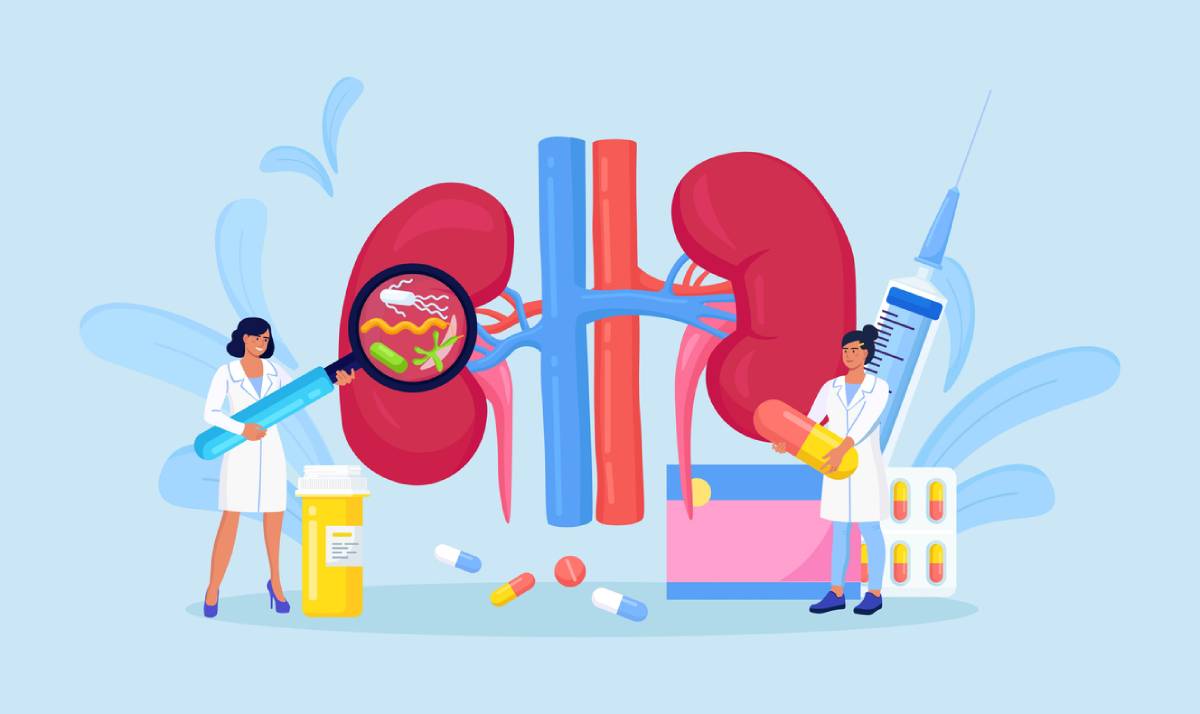Chronic kidney disease is a dangerous and possibly deadly condition that heavily impacts the health and livelihood of those that it affects. For this reason, it’s important to address it as well as one can in an aggressive manner. Below, we look at the question: can you cure chronic kidney disease?
One unfortunate effect of kidney disease is that there is no permanent cure for this condition. However, with the right kinds of treatment from a chronic kidney disease specialist, you can successfully manage this condition to add years of well-being and healthy living to your existence.
Can You Cure Chronic Kidney Disease?
If you or a loved one suffers from chronic kidney disease, take a look at this overview of the condition and ways that you can successfully manage it.
The Basics Behind Chronic Kidney Disease
By flushing waste materials through the urinary system, kidneys carry out the vital task of filtering waste materials out of the body. Dangerous concentrations of liquid waste material build up in the body if your kidneys start to fail.
It’s possible that kidney illness won’t become apparent to you until after symptoms start to appear. On the other hand, early detection of the modest signs can help avert the later onset of more serious disease.
Even after determining the underlying reason, there’s a danger that after the illness has advanced, you won’t be able to control it. You probably won’t survive if your kidney disease worsens to the point beyond where dialysis can help.
The Symptoms of Chronic Kidney Disease
The onset of severe renal disease is accompanied by a variety of symptoms. Among the most prominent ones to be on the lookout for are:
- Vomiting
- Loss of appetite
- Fatigue
- Impaired mental acuity
- Urinating more or less
- Swelling in the feet or ankles
- Dry and itchy skin
- Elevated blood pressure or hypertension
- Shortness of breath and chest pain, which may be a sign of fluid accumulation
- Experiencing nausea
All of these indications and symptoms may also be connected to other medical conditions. On the other hand, you might want to get in touch with a doctor if symptoms start to manifest more than once so that they can be diagnosed.
When Should I Seek Treatment?
Try to get medical attention as soon as you notice any of the aforementioned symptoms so that you can stop renal disease before it progresses to the point of kidney failure.
If you have a medical condition that predisposes you to experiencing severe symptoms, you should exercise extra caution. A battery of tests will probably be ordered by your doctor to rule out any underlying medical issues that could put you at higher risk of developing severe kidney disease.
By maintaining a detailed record of the different kinds of symptoms you’re experiencing, you may better prepare for your visit and talk with your doctor about your health. You can assist your doctor by reporting these to them, which can help them to develop a plan of action regarding your treatment more quickly.
Managing Chronic Kidney Disease
There are several methods for treating chronic kidney disease in its moderate forms. Some of the following are considered stand-bys:
- Medications that relieve swelling
- High blood pressure medications
- Medications to lower cholesterol levels
- Medications that treat anemia
- Medications to protect your bones
- A lower protein diet that minimizes the waste products in the blood
Your physician may prescribe one or more of these things during a review of the health of your kidneys. Following their advice to the T is essential for maintaining your health in the face of this condition.
Dialysis: the Solution for Late-Stage Kidney Disease
The go-to treatment for late-stage kidney disease is kidney dialysis. A patient’s kidneys are cleansed of excess water, toxins, and solutes during renal dialysis. In many cases, this operation is essential to prevent a patient from becoming gravely ill or from dying.
Normally, healthy kidneys are able to handle this without any assistance. When a patient has a chronic kidney disease that keeps their kidneys from functioning normally, dialysis must be used in place of kidney disease treatment.
There are several types of kidney dialysis, and each focuses on a different aspect of treatment. Hemodialysis is a type of dialysis where a tiny needle is used to take a patient’s blood.
The Kidney Expert of Beverly Hills
Victor Gura is the top nephrologist in Beverly Hills, and has the tools and expertise to consult with patients who are suffering from chronic kidney disease. Contact Dr. Gura today in order to set up an appointment and get the ball rolling on living your most optimal health today.

